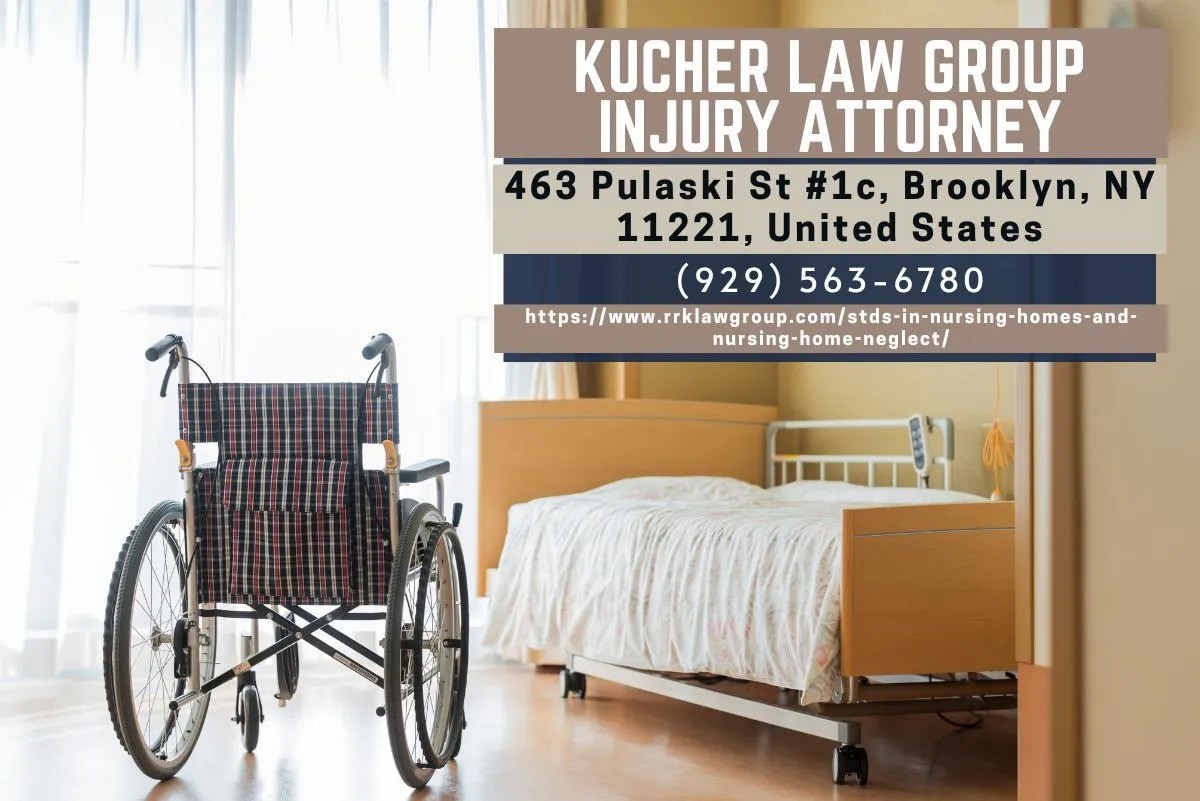A disturbing rise in sexually transmitted diseases among elderly residents in New York care facilities has intensified public concern, prompting Brooklyn nursing home negligence lawyer Samantha Kucher (https://www.rrklawgroup.com/stds-in-nursing-homes-and-nursing-home-neglect/) to spotlight the issue in a recent discussion. With STD rates among individuals aged 55 and older more than doubling from 2012 to 2022, the potential connection to neglect in nursing homes cannot be ignored.

Brooklyn nursing home negligence lawyer Samantha Kucher emphasizes that understanding this link is vital. The spread of infections such as chlamydia, gonorrhea, and syphilis in senior living environments reflects deeper systemic issues within care facilities. These trends point to failures in supervision, education, and preventive health practices, which are all essential to resident safety and dignity.
Samantha Kucher, a Brooklyn nursing home negligence lawyer at the Kucher Law Group, states that inadequate staff training, poor communication systems, and under-testing for STDs all contribute to conditions where infections can spread unchecked. “The health and safety of elderly residents in New York nursing homes are paramount, yet recent trends indicate a troubling increase in sexually transmitted diseases (STDs) within this vulnerable population,” Kucher explains.
According to public health data, the rise in STD cases is driven by several factors. Many elderly residents continue to lead sexually active lives, often without adequate awareness or resources to protect themselves. The use of medications that enhance sexual function, a lack of condom use due to misconceptions about risk, and cognitive impairments that interfere with informed consent all play a role. These dynamics are often overlooked in environments not properly equipped to manage or acknowledge the sexual health needs of aging populations.
In many instances, the outbreak of STDs in a facility can be a direct indicator of nursing home negligence. Failures to maintain adequate supervision, provide sufficient staff training, and enforce robust reporting systems can allow cases of abuse or unsafe behavior to go unnoticed. Nursing home staff may miss early warning signs or fail to act on them, putting vulnerable residents at increased risk of harm.
Families are advised to watch for behavioral and physical changes that might signal infection or abuse. These can include discomfort, unusual discharges, emotional withdrawal, or bruising. In residents who are unable to give consent due to cognitive limitations, an STD diagnosis should immediately trigger a deeper investigation.
Nursing homes in New York have legal responsibilities to protect residents from harm and provide competent care. When they fall short, it may constitute negligence under state law. Facilities must follow strict regulations, including individualized care plans, regular assessments, and professional medical support. Non-compliance can lead to severe consequences such as fines, lawsuits, or reputational damage.
Samantha Kucher points out that pursuing legal action is often necessary to hold facilities accountable and prevent further harm. Building a case for nursing home neglect related to STDs involves documenting medical records, collecting witness statements, and gathering evidence of facility conditions and incidents. A thorough legal approach helps ensure that justice is served and that the safety of other residents is not compromised.
For families, recognizing the signs of neglect and acting quickly can be critical. Open communication with administrators, careful documentation, and seeking legal guidance are key steps toward protecting loved ones. Facilities that fail to meet their duties not only jeopardize the health of residents but also violate fundamental rights guaranteed under New York law.
The consequences of nursing home neglect extend beyond physical health. Residents may suffer from depression, anxiety, or post-traumatic stress, while families often grapple with guilt and stress. The role of families in monitoring care and advocating for improvements remains crucial in addressing these issues.
Legal assistance can help residents and their families understand their rights and navigate the process of filing a claim. By highlighting these risks, Samantha Kucher aims to increase awareness and foster accountability within New York’s elder care system.
Those concerned about a loved one’s welfare in a nursing facility can contact the Kucher Law Group to explore legal options. Timely action may prevent further harm and help ensure that facilities uphold the standard of care the law requires.
Kucher Law Group remains committed to advocating for the elderly and their families. Through legal representation and public awareness, the firm works to ensure that nursing homes provide environments where residents are protected, respected, and supported.
About Kucher Law Group:
Kucher Law Group is a Brooklyn-based firm focused on representing individuals affected by personal injury and nursing home negligence. The team, led by Samantha Kucher, provides legal support to families seeking justice for elder neglect and abuse, promoting accountability and upholding residents’ rights in long-term care facilities across New York.
Email: contact@rrklawgroup.com
Media Contact

Name
Kucher Law Group Injury Attorney
Contact name
Samantha Kucher
Contact phone
(929) 563-6780
Contact address
463 Pulaski St #1c
City
Brooklyn
State
NY
Zip
11221
Country
United States
Url
https://www.rrklawgroup.com/brooklyn-personal-injury-attorney/

